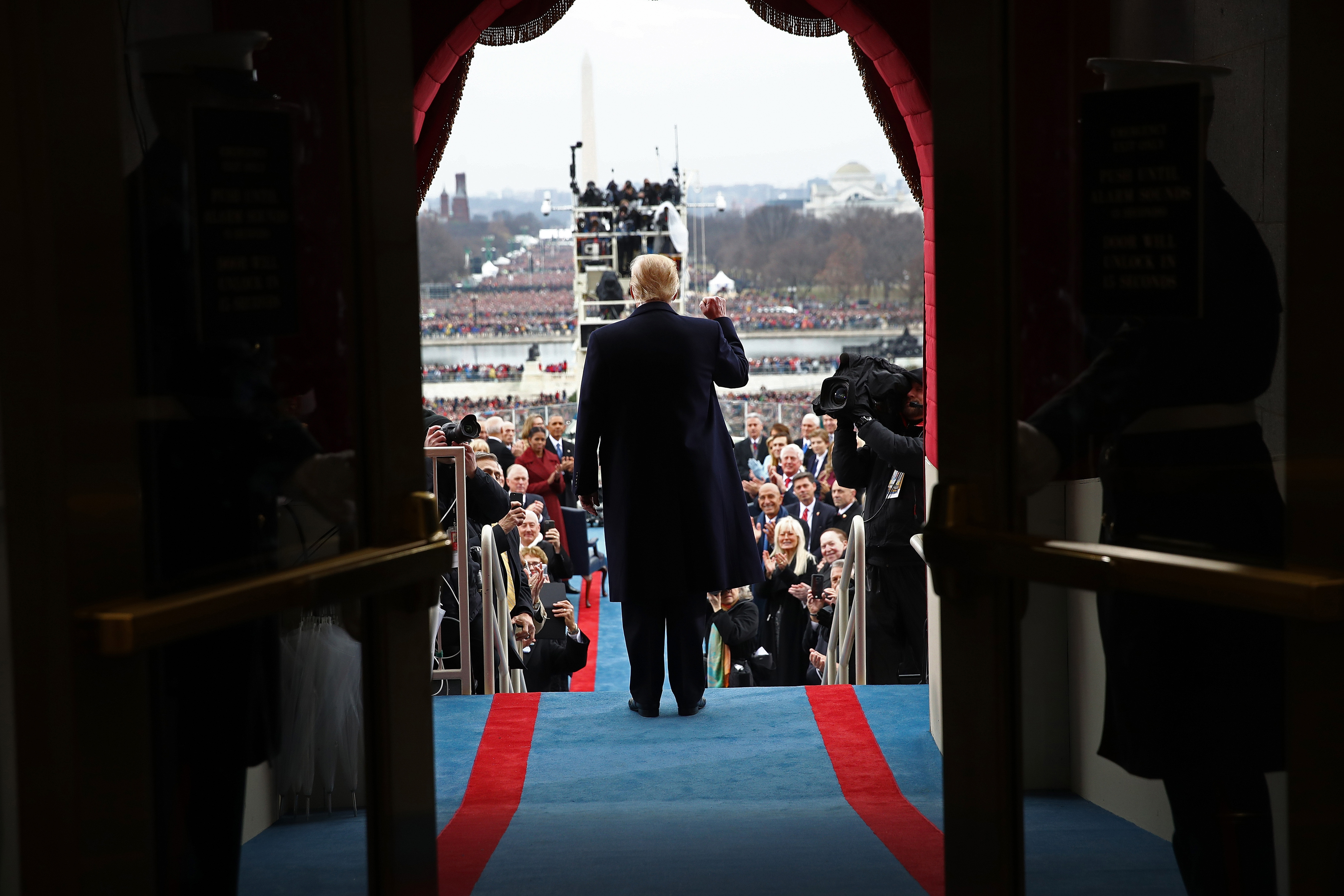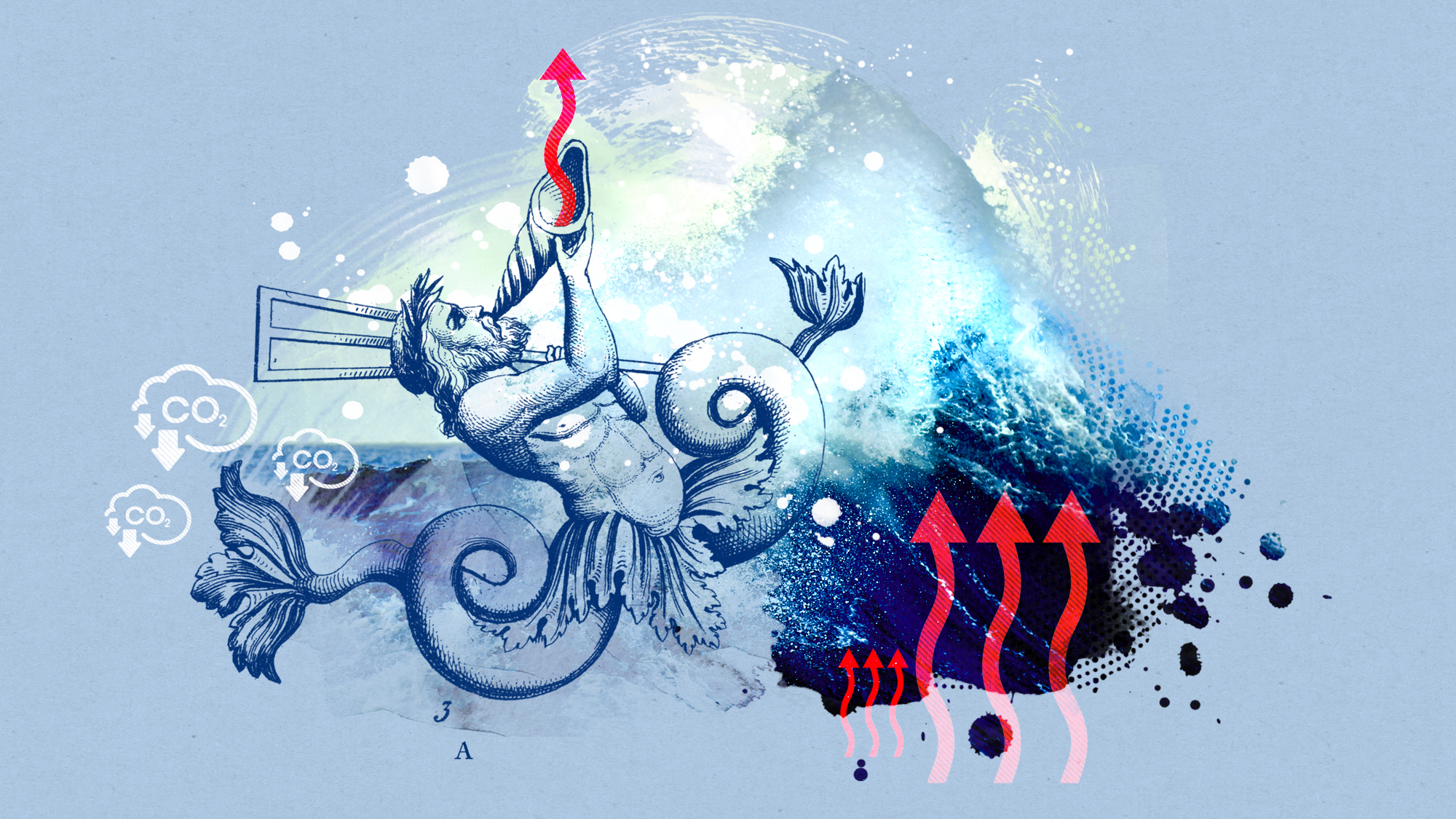How President Trump finally destroyed Reagan's Republican Party
Now can he actually deliver on his promise and give power to the people?


The new president, just sworn in, stepped forward to deliver his inaugural address before a largely skeptical nation. He spoke in sweeping terms about our daunting problems — an "economic affliction of great proportions" — but assured us that as a "united people" we could overcome them, "putting America back to work." "Our present troubles," he claimed, could be conquered, "reawakening this industrial giant" and beginning "an era of national renewal."
That wasn't Donald Trump's inaugural address on Friday. It was Ronald Reagan's in 1981.
Trump did deliver an inaugural address that echoed Reagan's in important ways. Once again a new president spoke of national unity and America as a nation brought low by economic problems and longing for regeneration. Once again he claimed that government too often works against the American people. Once again he appealed to past and future national greatness and promised to overcome the trials of the present.
The Week
Escape your echo chamber. Get the facts behind the news, plus analysis from multiple perspectives.

Sign up for The Week's Free Newsletters
From our morning news briefing to a weekly Good News Newsletter, get the best of The Week delivered directly to your inbox.
From our morning news briefing to a weekly Good News Newsletter, get the best of The Week delivered directly to your inbox.
These are themes that have resonated and reverberated down through the decades among Republican politicians. They are a message that Paul Ryan, the Republican speaker of the House, touches on in virtually all of his public remarks. They were there in the speeches of President George W. Bush and echoed through statements of recent GOP presidential nominees John McCain and Mitt Romney.
These sentiments define the Reagan era in our nation's politics — an era that began with the 40th president's speech on January 20, 1981, and ended with the 45th president's speech on January 20, 2017, exactly 36 years later.
Through sheer inertia, remnants of that era will persist for a while, especially among certain members of Congress, in right-of-center think tanks, and among conservative-movement intellectuals, all of whom have focused so long and so obsessively on cutting government that they don't know what else to do or say with their minds or their efforts in American public life. But make no mistake: On Friday, Trump accomplished an ideological sea change. Yes, he spoke in Reaganite terms of transferring power from Washington back to "you, the people." But when Reagan said those words, he was talking about individuals. Government, Reagan insisted, was smothering the creativity and ambition and productivity of individual Americans. Cut it back, get it out of the way, and the genius, the virtue, the heroism of ordinary Americans would rise up and flourish, enabling them to "begin an era of national renewal."
In keeping with this focus on the efforts of individual Americans, Reagan used most of his address to engage in a national pep talk, filled with more than a touch of flattery. The country was filled with heroes, all around us, "going in and out of factory gates," farmers, service workers, and consumers, as well as "entrepreneurs with faith in themselves and faith in an idea who create new jobs, new wealth, and opportunity." These are people whose "patriotism is quiet, but deep" and whose "values sustain our national life."
A free daily email with the biggest news stories of the day – and the best features from TheWeek.com
Reagan also engaged in unabashed moral exhortation. Quoting Joseph Warren, president of the Massachusetts Congress at the time of the country's founding, Reagan called on his fellow Americans to "act worthy of yourself." In doing so, the country would "again be the exemplar of freedom and a beacon of hope for those who do not now have freedom." All of it culminated in a rousing and moving call for Americans to "believe in ourselves and to believe in our capacity to perform great deeds, to believe that together with God's help we can and will resolve the problems which now confront us."
Trump's version of exhortation is profoundly different. Again and again he spoke in blunt nationalist and populist terms about the need to reassert the will of "the people" against something much broader than Reagan's "government." The antagonist of the people now is an entrenched "establishment" that goes far beyond the federal government and encompasses both parties.
And when it comes to the government, the goal is less to cut it back to unleash stifled energy and creativity than to assure that it is "controlled by the people." Trump's speech was primarily about power — about placing it in the people's hands, and setting himself up to serve as its conduit and executor. Listening to the speech in isolation, one might conclude he had just led a coup against an entrenched dictatorship. Today was the day, he said, when the people "became rulers of this nation again."
The rhetoric was simplistic but also muscular, bombastic, sweeping, illiberal, even fascistic. Trump described himself as leading a "historic movement the likes of which the world has never seen before." He would be the nation's savior, purging it of crime, drugs, violence, and decay. "Radical Islamic terrorism" would be "eradicated." Factories would be reopened. Vanished jobs would return — and all because the people would finally have a government focused on them, their interests, their needs, and the "millions and millions of American workers" who have been "left behind."
All presidents speak of pursuing the goal of national unity. Reagan did, too. But Trump went further, speaking of the country as a single entity or organism. We are "one nation" that shares "one heart, one home, and one glorious destiny." And to realize that destiny, we must put "only America first." We must buy American. Hire American. Protect our borders, not the borders of other countries in other places. In a speech containing more references to God than one might have expected from Trump, the new president spoke of how the Bible "tells us how good and pleasant it is when God's people live together in unity."
"When America is united, America is totally unstoppable."
Like Reagan, Trump emphasized the importance of pursuing grand dreams, but for Trump those dreams are national, communal: We must "think big but dream even bigger." "A nation is only living as long as it is striving," Trump added. This is "the hour of action," which will include industrial policy, border walls, economic protectionism, and massive public works projects: new roads and highways and tunnels and railways, built throughout the nation.
This isn't Ronald Reagan's Republican Party anymore. It's Steve Bannon's. And Stephen Miller's.
And Donald Trump's.
But is it truly the people's?
Damon Linker is a senior correspondent at TheWeek.com. He is also a former contributing editor at The New Republic and the author of The Theocons and The Religious Test.
-
 Has Zohran Mamdani shown the Democrats how to win again?
Has Zohran Mamdani shown the Democrats how to win again?Today’s Big Question New York City mayoral election touted as victory for left-wing populists but moderate centrist wins elsewhere present more complex path for Democratic Party
-
 Millions turn out for anti-Trump ‘No Kings’ rallies
Millions turn out for anti-Trump ‘No Kings’ ralliesSpeed Read An estimated 7 million people participated, 2 million more than at the first ‘No Kings’ protest in June
-
 Ghislaine Maxwell: angling for a Trump pardon
Ghislaine Maxwell: angling for a Trump pardonTalking Point Convicted sex trafficker's testimony could shed new light on president's links to Jeffrey Epstein
-
 The last words and final moments of 40 presidents
The last words and final moments of 40 presidentsThe Explainer Some are eloquent quotes worthy of the holders of the highest office in the nation, and others... aren't
-
 The JFK files: the truth at last?
The JFK files: the truth at last?In The Spotlight More than 64,000 previously classified documents relating the 1963 assassination of John F. Kennedy have been released by the Trump administration
-
 'Seriously, not literally': how should the world take Donald Trump?
'Seriously, not literally': how should the world take Donald Trump?Today's big question White House rhetoric and reality look likely to become increasingly blurred
-
 Will Trump's 'madman' strategy pay off?
Will Trump's 'madman' strategy pay off?Today's Big Question Incoming US president likes to seem unpredictable but, this time round, world leaders could be wise to his playbook
-
 Democrats vs. Republicans: who are US billionaires backing?
Democrats vs. Republicans: who are US billionaires backing?The Explainer Younger tech titans join 'boys' club throwing money and support' behind President Trump, while older plutocrats quietly rebuke new administration



